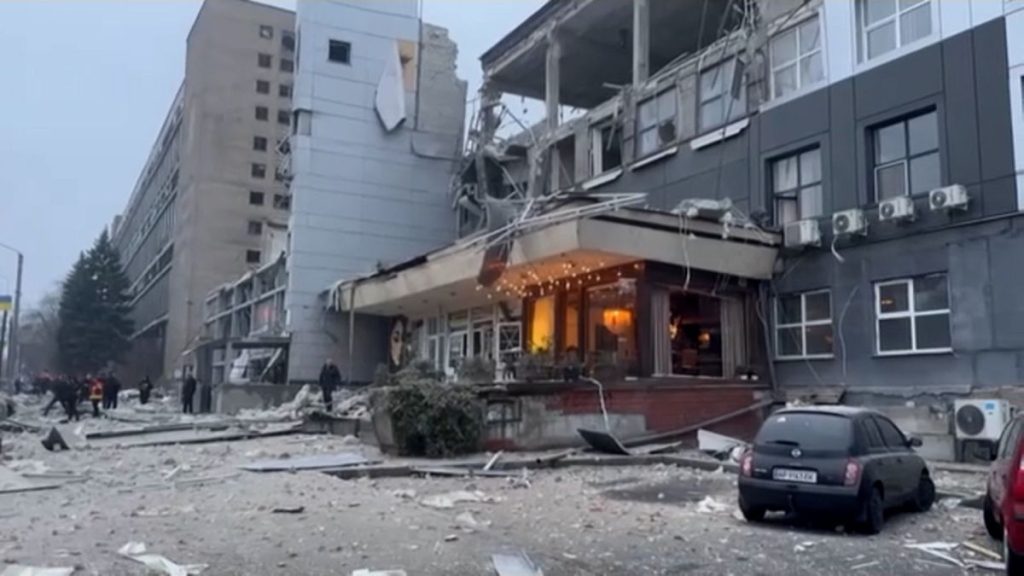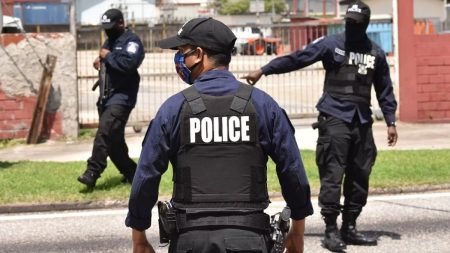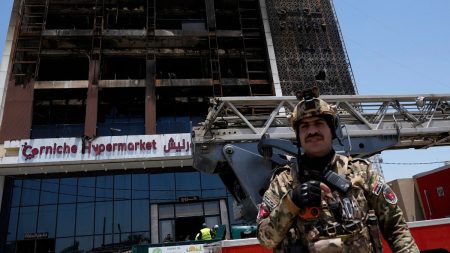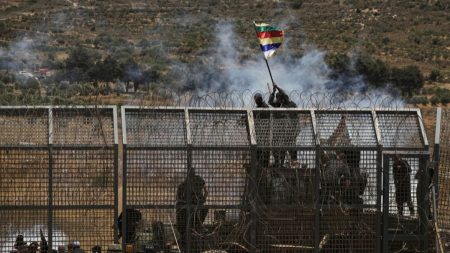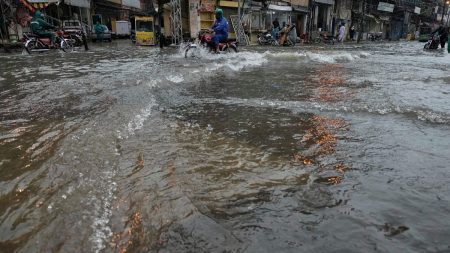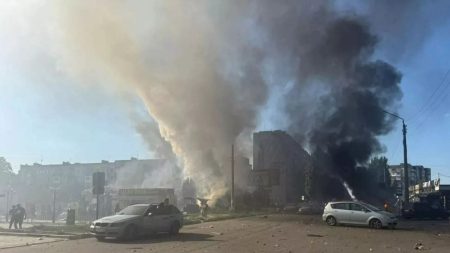The devastating air strike that ravaged Zaporizhzhia, Ukraine on Tuesday, October 12, 2024, serves as a grim reminder of the ongoing conflict’s devastating impact on civilian populations. The attack, attributed to Russian forces, targeted a private clinic, resulting in the tragic loss of at least three lives and leaving several others wounded. The clinic, a vital healthcare facility serving the community, was reduced to rubble, highlighting the indiscriminate nature of the violence that continues to plague the region. This latest assault on Zaporizhzhia underscores the vulnerability of civilian infrastructure and the urgent need for increased international efforts to protect innocent lives caught in the crossfire. The attack comes amidst escalating tensions and renewed fighting in the region, raising concerns about a further intensification of the conflict and its potential humanitarian consequences.
Zaporizhzhia, a southeastern Ukrainian city located near the front lines of the conflict, has been subjected to repeated attacks since the Russian invasion began. Its strategic location, including its proximity to the Zaporizhzhia Nuclear Power Plant, the largest nuclear power facility in Europe, has made it a focal point of the conflict. The repeated targeting of civilian infrastructure in the city, including hospitals, schools, and residential areas, has drawn widespread condemnation from international organizations and human rights groups. These attacks not only cause immediate casualties and destruction but also inflict long-term psychological trauma on the affected communities, disrupting essential services and undermining the already fragile social fabric. The consistent threat of violence forces residents to live in constant fear, impacting their daily lives and hindering efforts to rebuild and recover.
The attack on the private clinic in Zaporizhzhia underscores the broader humanitarian crisis unfolding in Ukraine. The conflict has displaced millions of people, forcing them to flee their homes in search of safety and creating immense pressure on neighboring countries and international aid organizations. The ongoing violence has also severely disrupted access to essential resources, including food, water, and medical care, pushing vulnerable populations to the brink of starvation and disease. The destruction of healthcare facilities, like the clinic in Zaporizhzhia, further exacerbates the crisis, limiting access to critical medical services and jeopardizing the health and well-being of affected communities. The international community continues to grapple with the scale of the humanitarian crisis, emphasizing the urgent need for increased funding, resources, and coordinated efforts to alleviate suffering and provide much-needed assistance to those in need.
The targeting of medical facilities during armed conflicts is a violation of international humanitarian law, which explicitly protects hospitals and medical personnel from attack. These institutions are designated as safe havens for the sick and wounded and should never be subjected to military action. The attack in Zaporizhzhia adds to a growing list of attacks on healthcare facilities in Ukraine, representing a disturbing trend that directly undermines the fundamental principles of humanitarian law and poses a grave threat to the safety and well-being of civilians. Such attacks not only result in the loss of life and injury but also deprive communities of access to essential healthcare, particularly during times of war when medical services are most crucial. The international community must condemn these violations of international law in the strongest possible terms and hold those responsible accountable for their actions.
The Russian government has consistently denied targeting civilian infrastructure, including the clinic in Zaporizhzhia, often blaming Ukrainian forces for the attacks. However, overwhelming evidence, including eyewitness accounts, satellite imagery, and independent investigations, points to Russian responsibility for a significant number of attacks on civilian targets in Ukraine. This denial of responsibility and the lack of accountability for such attacks underscore the urgent need for independent investigations and mechanisms to document and verify war crimes and hold perpetrators to account. International bodies, including the International Criminal Court, are currently investigating alleged war crimes committed in Ukraine, but these processes are complex and time-consuming. It is crucial for the international community to support these efforts and ensure that justice is served for the victims and their families.
The international community faces a significant challenge in responding to the ongoing conflict in Ukraine. Efforts to negotiate a peaceful resolution have repeatedly stalled, while humanitarian needs continue to escalate. The attack on the private clinic in Zaporizhzhia serves as a sobering reminder of the devastating impact of this conflict on civilian populations and the urgent need for a concerted international response. The international community must intensify its diplomatic efforts to find a political solution to the conflict, while simultaneously scaling up humanitarian assistance to address the growing needs of those affected by the violence. This includes providing financial support, essential supplies, and access to healthcare, as well as supporting the work of humanitarian organizations on the ground. It is crucial that all parties to the conflict respect international humanitarian law and ensure the protection of civilians and civilian infrastructure. The world cannot stand idly by while innocent lives are lost and communities are destroyed. A sustained and coordinated international effort is essential to bring an end to the violence in Ukraine and prevent further suffering.




